In praise of Fish and Chips, the ultimate British dish – and our pick of places to try it
The one food never to be rationed for reasons of morale, fish and chips are at the very centre of what it is to be British. Charles Rangeley-Wilson dives in.
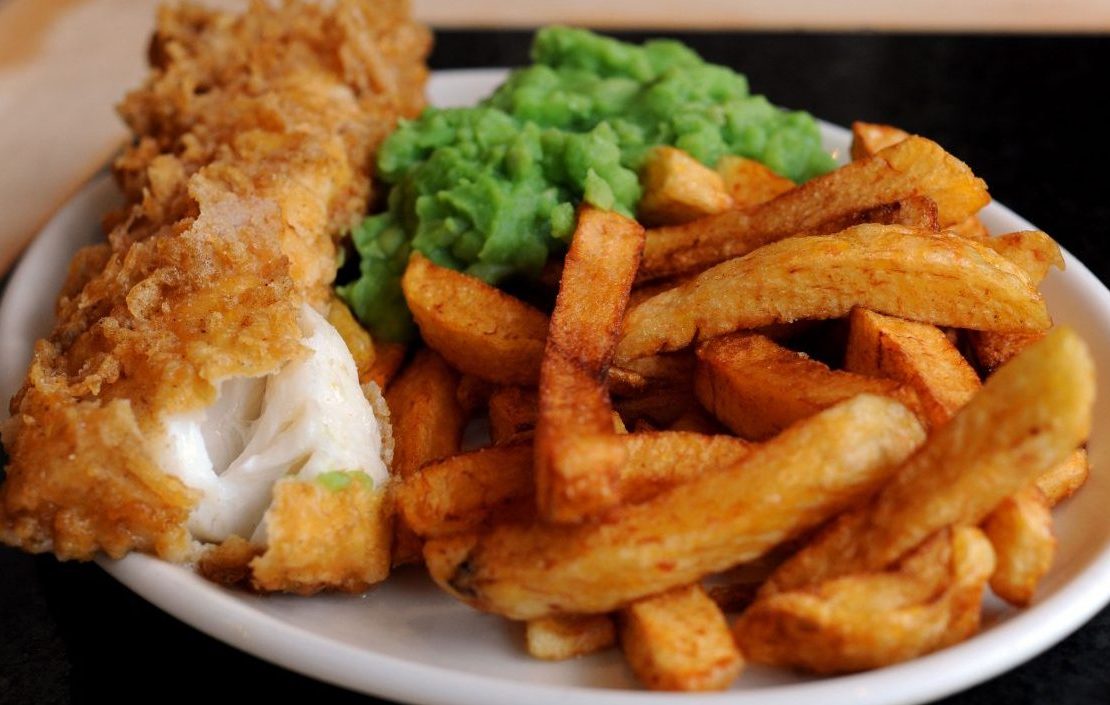
When you go abroad, I wonder if, after a few days, you start to miss certain things from back home – distinctly British things that are just never quite the same in other parts of the world. Not so much that it spoils the thrill of being away, but I wonder if you miss them all the same?
I do, and they’re always the same things: I miss pubs, proper tea, self-deprecating humour, unarmed police and fish and chips.
These things also define us in the minds of other nations, but I doubt any says British quite like fish and chips. This doughty, unpretentious meal seems perfectly to encapsulate our national spirit. It did so, literally, during the D-Day landings in 1944. British paratroopers needed a foolproof code that would identify friend or foe. What could have been better, or more foolproof, than ‘fish’ answered by ‘chips’? Any soldier floundering (no pun intended) for an answer – or a convincing pronunciation – might truly have had them. His chips, I mean (no pun intended).
Sir Winston Churchill was sure that fish and chips helped the British defeat Nazism. He called them our ‘good companions’ and deemed the meal so valuable to national morale and fighting spirit that it was the one food never rationed. Lloyd George kept our fryers frying during the First World War and, at a time, when more febrile nations were overturning the social order, George Orwell reckoned the comforting solidity of fish and chips saved our country from violent revolution.
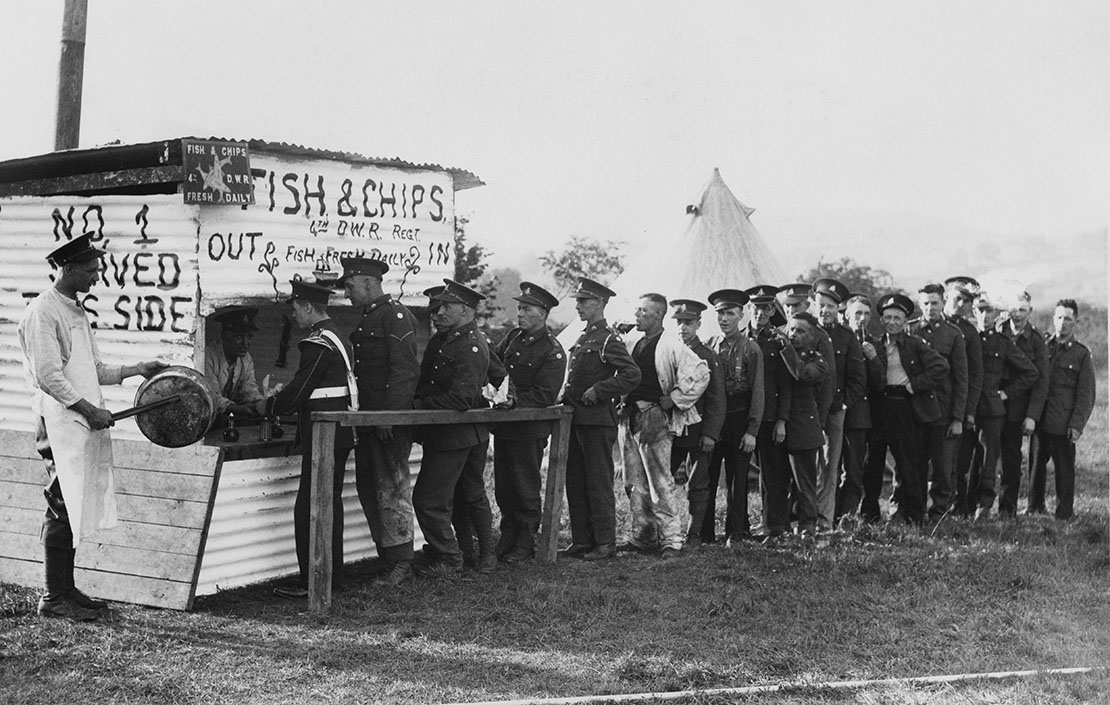
Those inter-World War years marked the heyday of fish and chips: there were 35,000 cafes and fish bars serving our favourite meal on the streets of Britain and the largest, Picton’s in Margate, served 700 at a sitting. Even now, with all sorts of fast foods competing for tummy room, we still support 10,500 fish-and-chip shops, eating some 170 million servings and spending more than £1 billion a year on them.
Strange, then, given how utterly British this meal became and remains, that no one had put a fried fish and a fried chip side by side until about 1860. Strange, also, that each half of our national dish came originally from overseas.
Sure, there were fried fish before that nation-building, culinary marriage. There were fried chips as well, but not together, sprinkled with the same vinegar. So how did it happen?
Sign up for the Country Life Newsletter
Exquisite houses, the beauty of Nature, and how to get the most from your life, straight to your inbox.
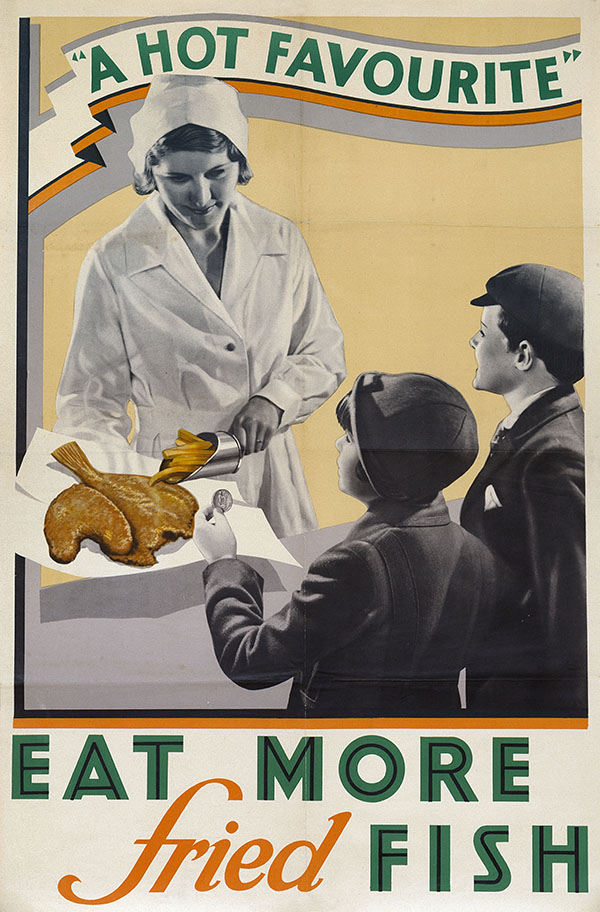
In Oliver Twist, published in 1837, Charles Dickens referred to a ‘fried-fish warehouse’ near Holborn. In fact, we’d had fried fish in England since the 16th century, brought over by Sephardic Jews who cooked their fish on Friday and ate it cold on the Sabbath. In 1544, Brudo Lusitano, a Portuguese doctor, described how the favourite diet of Marrano refugees was ‘fried fish, sprinkled with flour, dipped in egg and breadcrumbs’.
By the 19th century, there were fried-fish houses all over London. Sarah Russell, a renowned con artist who bottled and sold ordinary London water as ‘magnetic rock-water dew’ from the Sahara, more honestly traded in plaice and dab fried in a turmeric batter at her ‘hot potato and fried fish shop’ at 4, Clare Market in Westminster.
At a ha’penny each, ‘hot potatoes’ were already popular with the working classes and clearly something appealed about the juxtaposition of fish in batter and starchy spuds – but hot potatoes were not yet chips.
Chips seem to have come from Belgium, although there’s a fierce rivalry between the Belgians and the French as to quite who ‘invented’ the chip. The fact that it was peasant food may explain the lack of certainty in the history.
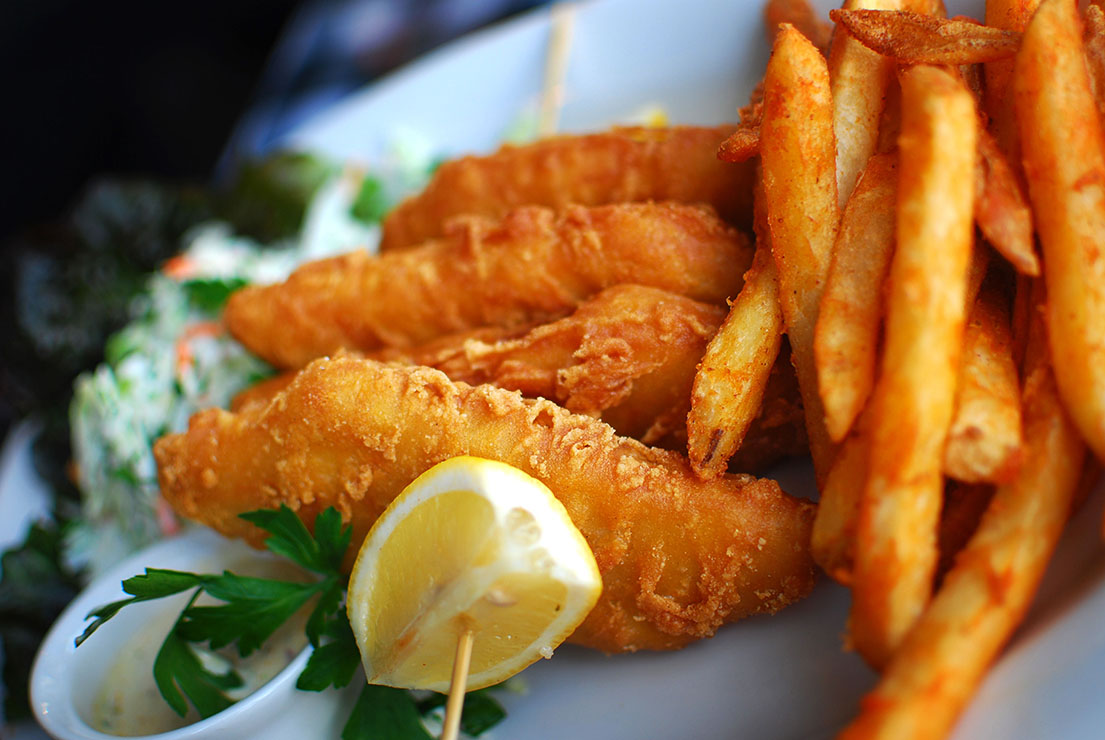
One story, oft repeated, suggests that, during the French Revolution (1789), street-hawkers began to sell ‘pomme de terre frites’ under the arches of the Pond Neuf in Paris.
However, the late Belgian journalist Jo Gérard claimed to have hold of a family manuscript dating from 1781, which included a description from one century earlier of how people living alongside the Meuse ate fried fish. When the river froze, they would fry potatoes instead, cut into the shape of fish. Perhaps there was something fishy about chips from the very start?
Dickens, again, refers in a Parisian scene to ‘husky chips of potato, fried with some reluctant drops of oil’, this time in A Tale of Two Cities (1859). By then, the fried chip was hugely popular throughout Paris and soon on its way to England, where the fateful marriage of fish and chips was about to occur. Of this, there is no doubt. Precisely where it first occurred, however, is still subject to partisan rivalry, North against South.
The southern claim goes to 13-year-old Joseph Malin, an immigrant from a family of rug weavers who, to boost their income, began to sell fried chips from their house in Bow in about 1860. Young Joseph hit on the idea of buying fish from a local fried-fish shop and selling the two together as he toured the streets of London with a tray hung around his neck. Later, he opened a fish-and-chip shop in Cleveland Way, Bow, East London.
Some say the date of 1860 is controversial, those ‘some’ being from Oldham in Manchester, where there’s a rival claim to being the first. Here, in 1863, John Lees began selling fish and chips from a wooden hut in Mossley Market and later opened a shop under the sign ‘Lee’s Chip Potato Restaurant: Oldest Estd. in the World’.
There will probably never be a final settling of that argument, but wherever and whenever the idea occurred, the resultant meal soon became as British as the monarchy and as popular, too.
This was odd, given that Britons had never been that big on fish, unlike our European neighbours. Before the Romans arrived, with their exotic tastes for oysters and sea bass, we seemed mildly fish averse and ate only salmon and eels with any enthusiasm. When the Romans left, we reverted.
After the Norman Conquest, fisheries became the preserve of a ruling aristocracy – perhaps, for vast swathes of the country that couldn’t get fresh fish from the sea, it was just never easily on the menu.
The advent of steam power changed all that: steam-powered trawling massively increased the catch rate of cod and haddock. Trawlers could get back to port from further out to sea than they ever had before.
Meanwhile, steam trains running from ports such as Whitby and Grimsby could take fresh fish into the industrial heart of England, places such as Manchester, Leeds, Sheffield and Nottingham, to feed tens of thousands of hungry factory workers. After a long week, a few pints and a fish supper on a Friday night would have been a treat to be savoured.
How appropriate, in our multi-cultural nation, that our national dish should be so multi-cultural in origin and should have been brought to this country, fried and served to a hungry public over the decades by waves of immigrants, by London’s East End Jews, by Chinese, Italians, Indians and Greeks. What could be more British than that?
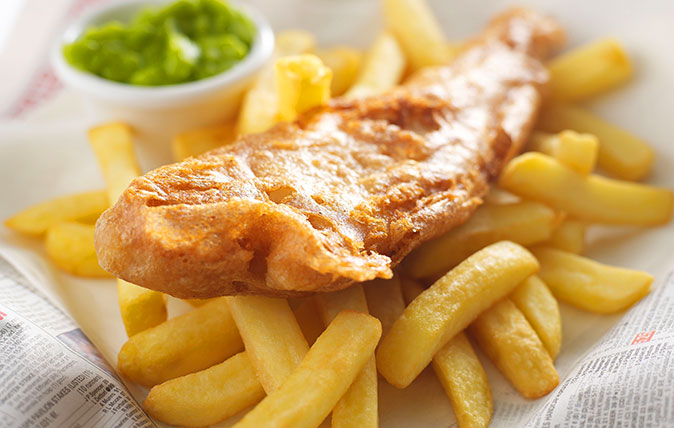
Where to get the best fish and chips
Seafish runs an annual Fish and Chip Awards. A glance through the winners of the past few years at www.fishandchipawards.com will tell you if there are top-class fish and chips to be had near you.
My favourite chippy of all has to be Eric’s in Thornham, north Norfolk: there’s an industrial vibe to the cafe, an awesome selection of craft ales and absolutely the best fillets of perfectly cooked cod you’ll find anywhere.
Londoners are well served by Kerbisher & Malt in Brook Green or Clapham: named after the owner’s grandfather’s herring drifter, this is another modern chippy with a difference and the recipient of consistently rave reviews in the media. More centrally, Covent Garden’s Rock & Sole Plaice has been a chippy since 1871, only a decade after fish and chips first came together. It’s as well loved now as it has ever been.
You can’t get much further north or much better fish and chips than at Frankie’s on Shetland, a Fish and Chip Awards winner in 2015, serving MSC Chain of Custody fish, landed daily from local suppliers. At the other extreme, there’s Stein’s in Padstow, which serves excellent fish, perfectly fried in beef dripping. The queues and reviews are a testament to a chippy well worth visiting. And many Scots would vote for the Anstruther Fish Bar in Fife, which has won a string of awards over the years.
The current holders of the Fish and Chip Awards top gong is Millers Fish & Chips in Haxby, North Yorkshire; and if that’s not down your neck of the woods, here’s the list of regional finalists:
- Burton Road Chippy, Lincoln, Lincolnshire
- Harbourside Fish & Chips, Plymouth, Devon
- Cromars Classic Fish & Chips, St Andrews, Fife
- Penaluna’s Famous Fish & Chips, Hirwaun, Rhondda Cynon Taff
- The Dolphin Takeaway, Dungannon, Co Tyrone
- Fylde Fish Bar, Southport, Merseyside
- The Golden Carp Chippy, Redditch, Worcestershire
- Henley’s of Wivenhoe, Wivenhoe, Colchester
- Captain’s Fish and Chips, Hoddesdon, Hertfordshire
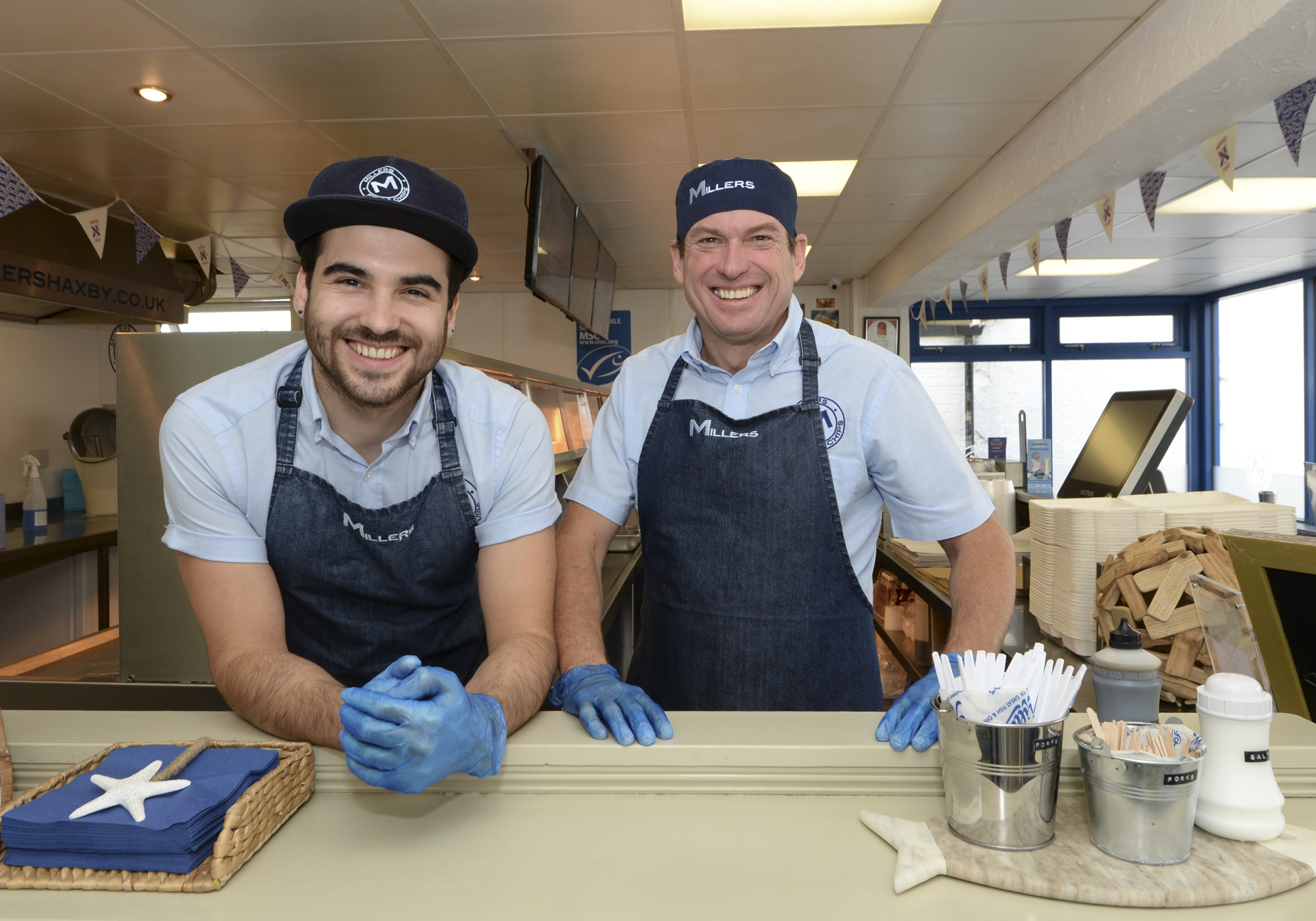
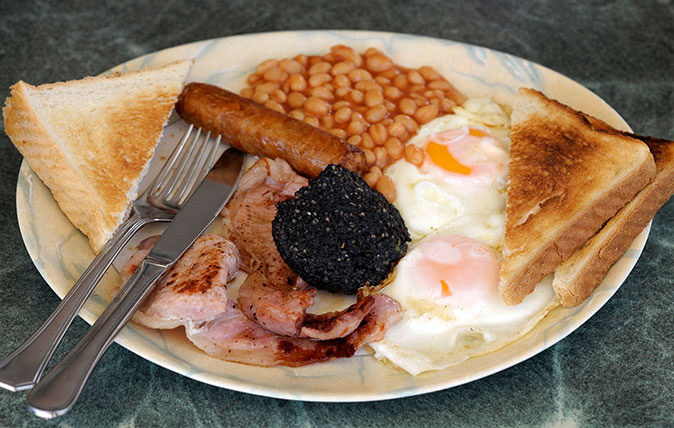
10 reasons why the Full English Breakfast is one of the world’s great meals
Famous the world over, the ‘full English’ breakfast is making a comeback, finds Ellie Hughes, as she tucks into a

Credit: Fish and chips (Alamy)
The best fish and chip shop in Britain for 2018 has been officially crowned
The best fish and chip shop in Britain has been named as Millers of Haxby.
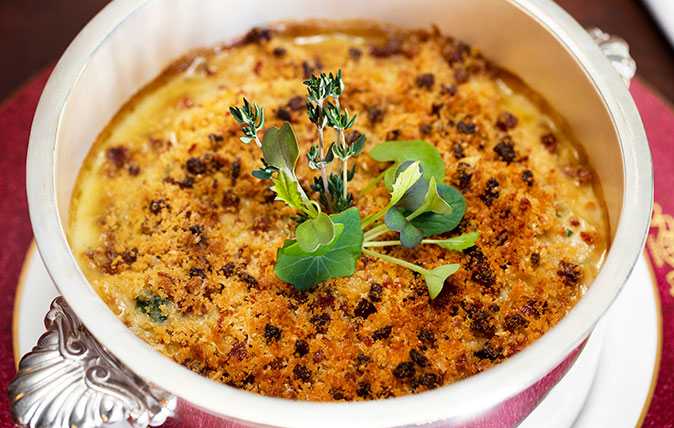
How to cook The Prince of Wales’ favourite dish: Pheasant Crumble Pie
See how to make the Prince of Wales's favourite dish, pheasant crumble pie, as demonstrated by John Williams, executive chef
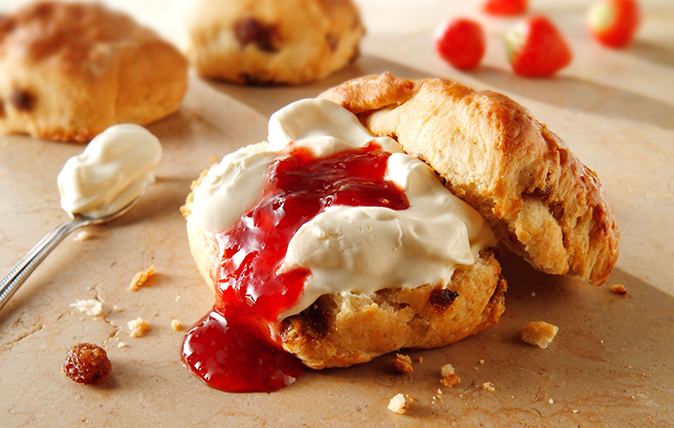
Curious Questions: How do you make the perfect cream scone?
Toby Keel is Country Life's Digital Director, and has been running the website and social media channels since 2016. A former sports journalist, he writes about property, cars, lifestyle, travel, nature.
-
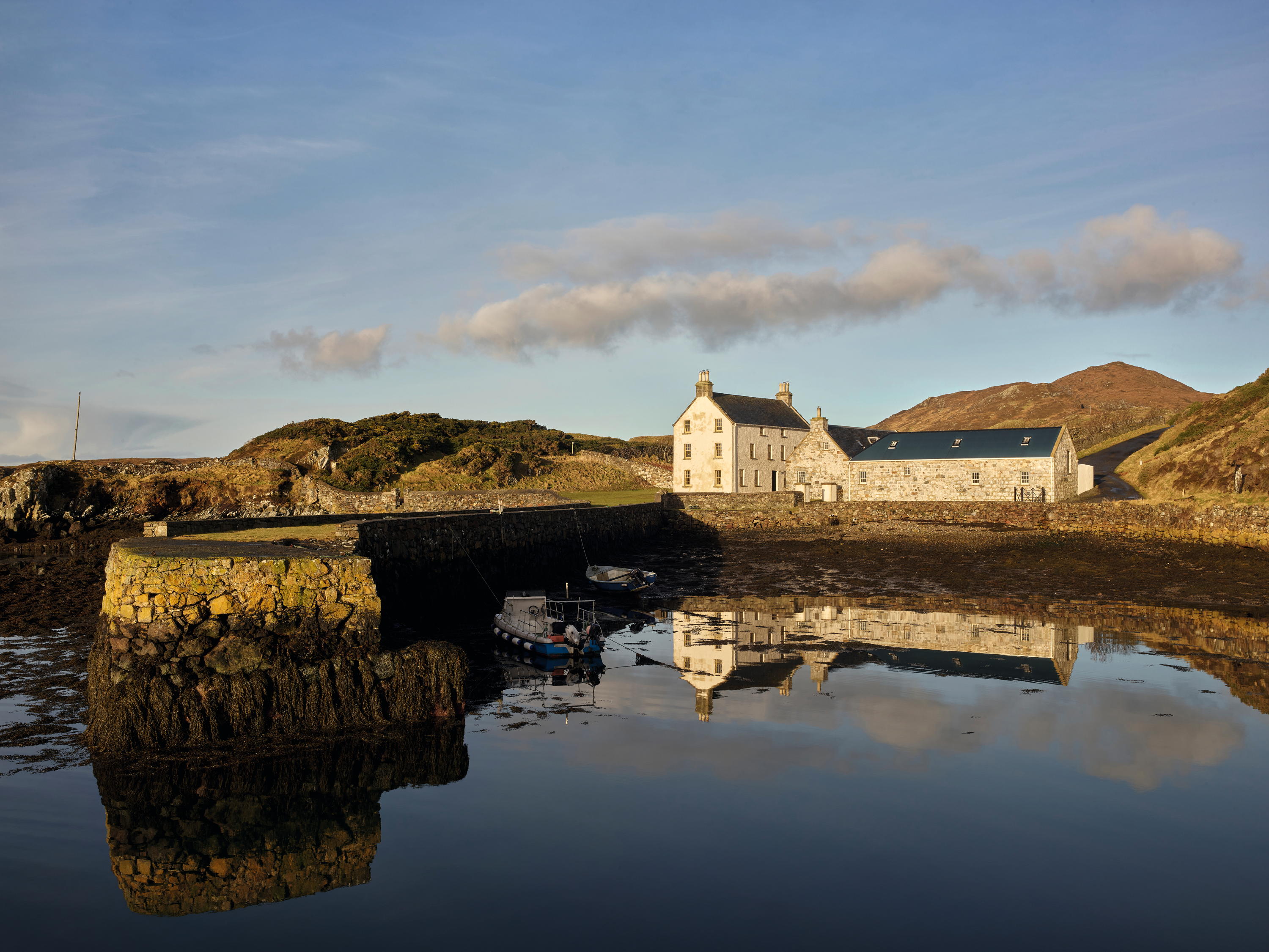 Rodel House: The Georgian marvel in the heart of the Outer Hebrides
Rodel House: The Georgian marvel in the heart of the Outer HebridesAn improving landlord in the Outer Hebrides created a remote Georgian house that has just undergone a stylish, but unpretentious remodelling, as Mary Miers reports. Photographs by Paul Highnam for Country Life.
By Mary Miers
-
 380 acres and 90 bedrooms on the £25m private island being sold by one of Britain's top music producers
380 acres and 90 bedrooms on the £25m private island being sold by one of Britain's top music producersStormzy, Rihanna and the Rolling Stones are just a part of the story at Osea Island, a dot on the map in the seas off Essex.
By Lotte Brundle
-
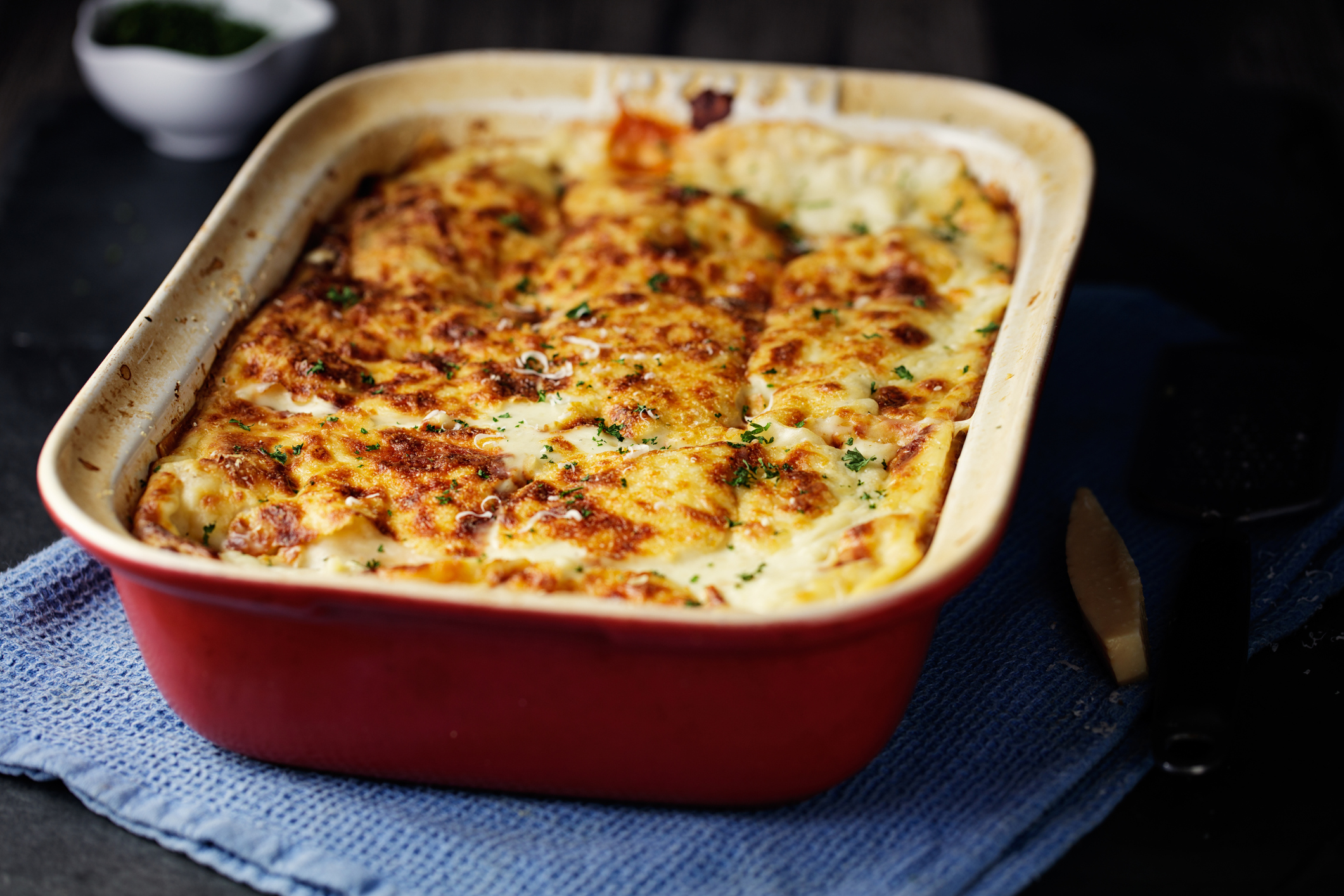 'Monolithic, multi-layered and quite, quite magnificent. This was love at first bite': Tom Parker Bowles on his lifelong love affair with lasagne
'Monolithic, multi-layered and quite, quite magnificent. This was love at first bite': Tom Parker Bowles on his lifelong love affair with lasagneAn upwardly mobile spaghetti Bolognese, lasagne al forno, with oozing béchamel and layered meaty magnificence, is a bona fide comfort classic, declares Tom Parker Bowles.
By Tom Parker Bowles
-
 Never leave a bun behind: What to do with leftover hot cross buns
Never leave a bun behind: What to do with leftover hot cross bunsWhere did hot cross buns originate from — and what can do with any leftover ones?
By Amie Elizabeth White
-
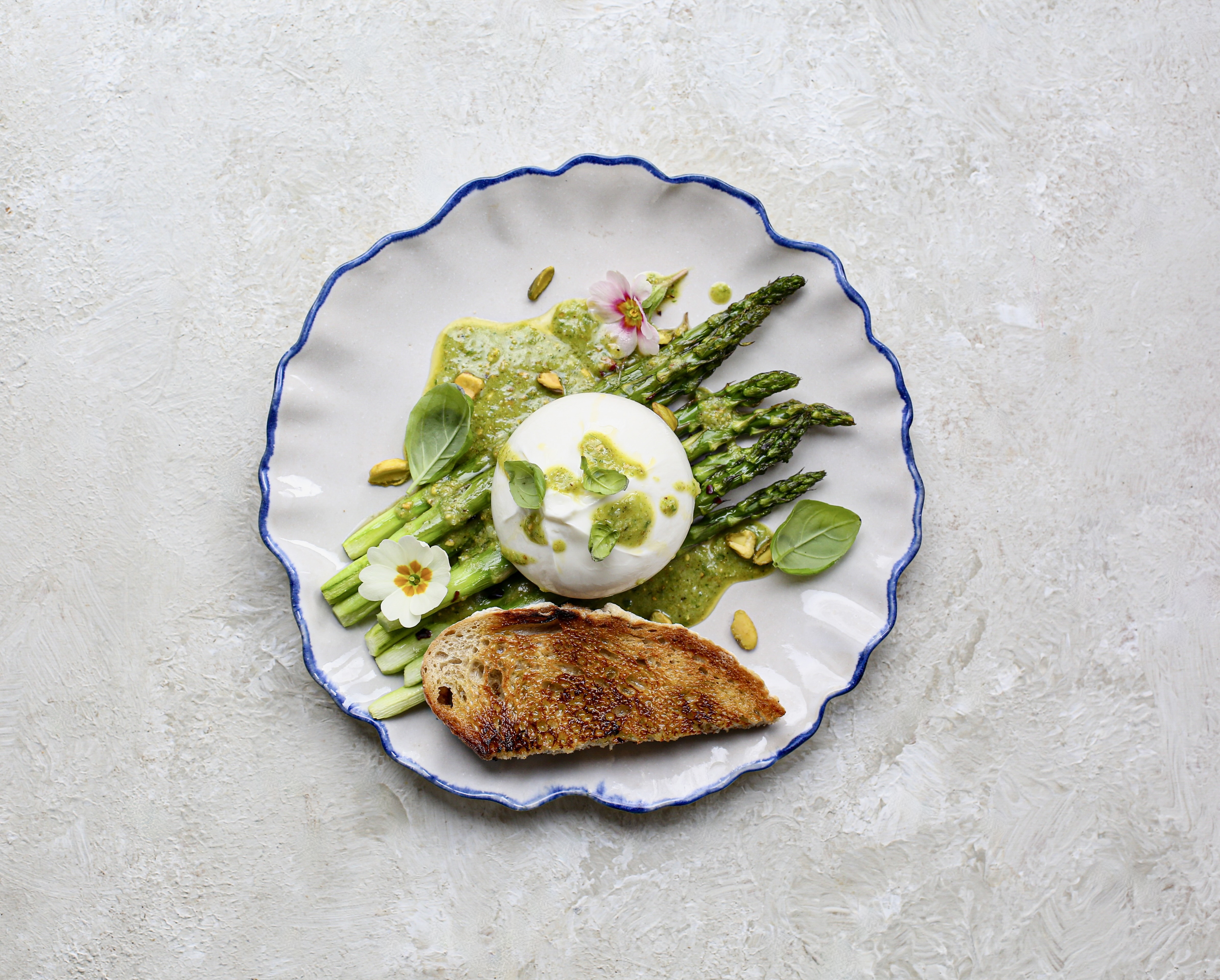 Two quick and easy seasonal asparagus recipes to try this Easter Weekend
Two quick and easy seasonal asparagus recipes to try this Easter WeekendAsparagus has royal roots — it was once a favourite of Madame de Pompadour.
By Melanie Johnson
-
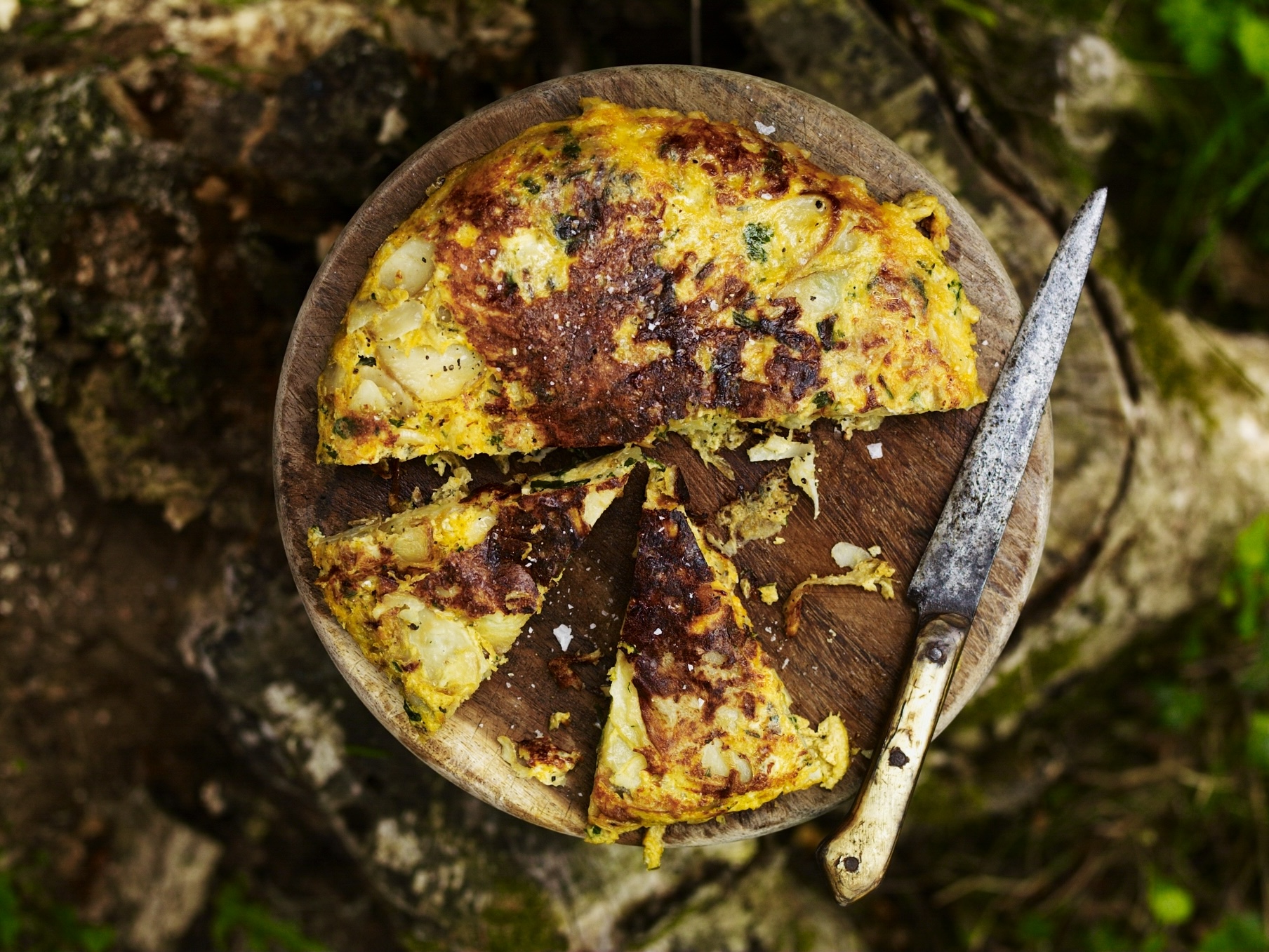 Gill Meller's recipe for a seasonal new potato omelette, with smoked garlic, onions and Cheddar cheese
Gill Meller's recipe for a seasonal new potato omelette, with smoked garlic, onions and Cheddar cheeseBy Gill Meller
-
 How to make a rhubarb and Swiss meringue cake that's almost too pretty to eat
How to make a rhubarb and Swiss meringue cake that's almost too pretty to eatMake the most of the last few stems of forced rhubarb.
By Melanie Johnson
-
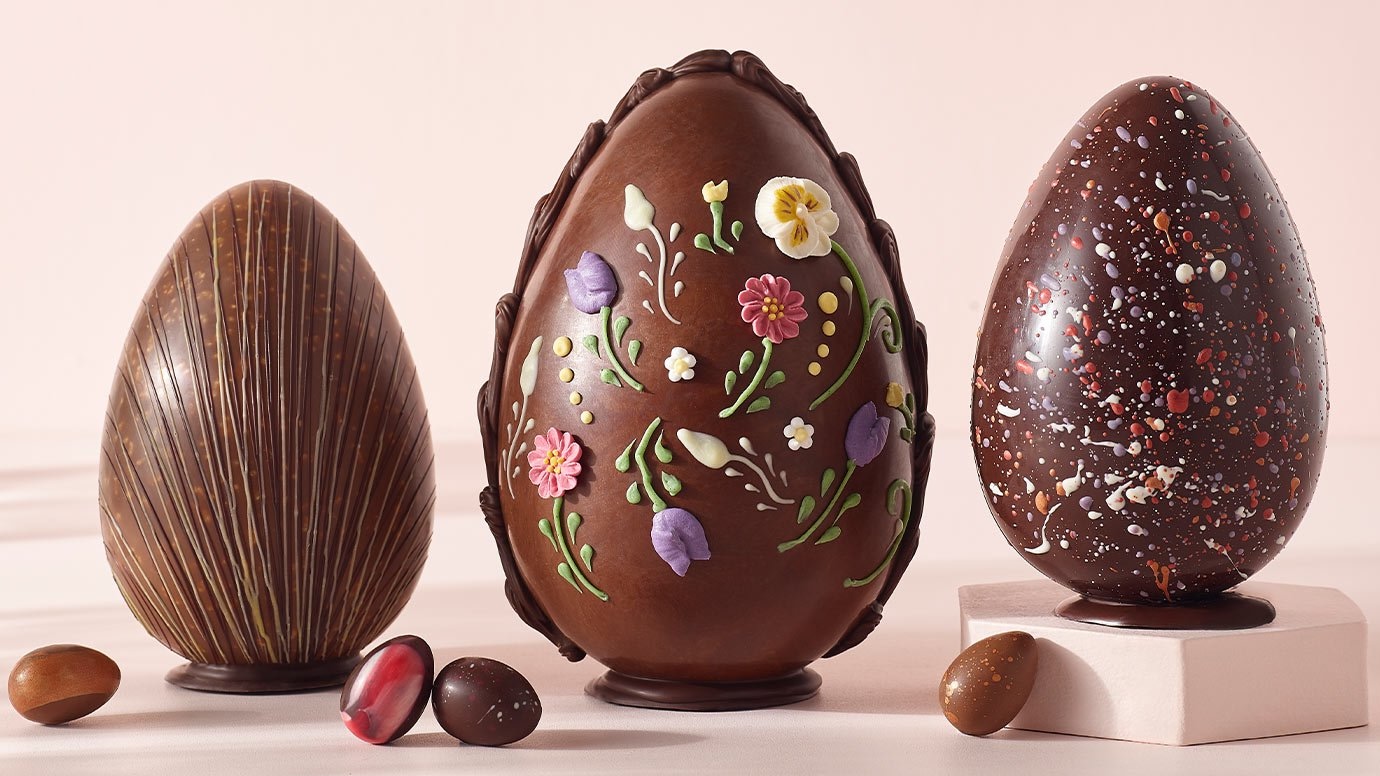 The prettiest Easter eggs for 2025
The prettiest Easter eggs for 2025Warning: Don't read if hungry.
By Rosie Paterson
-
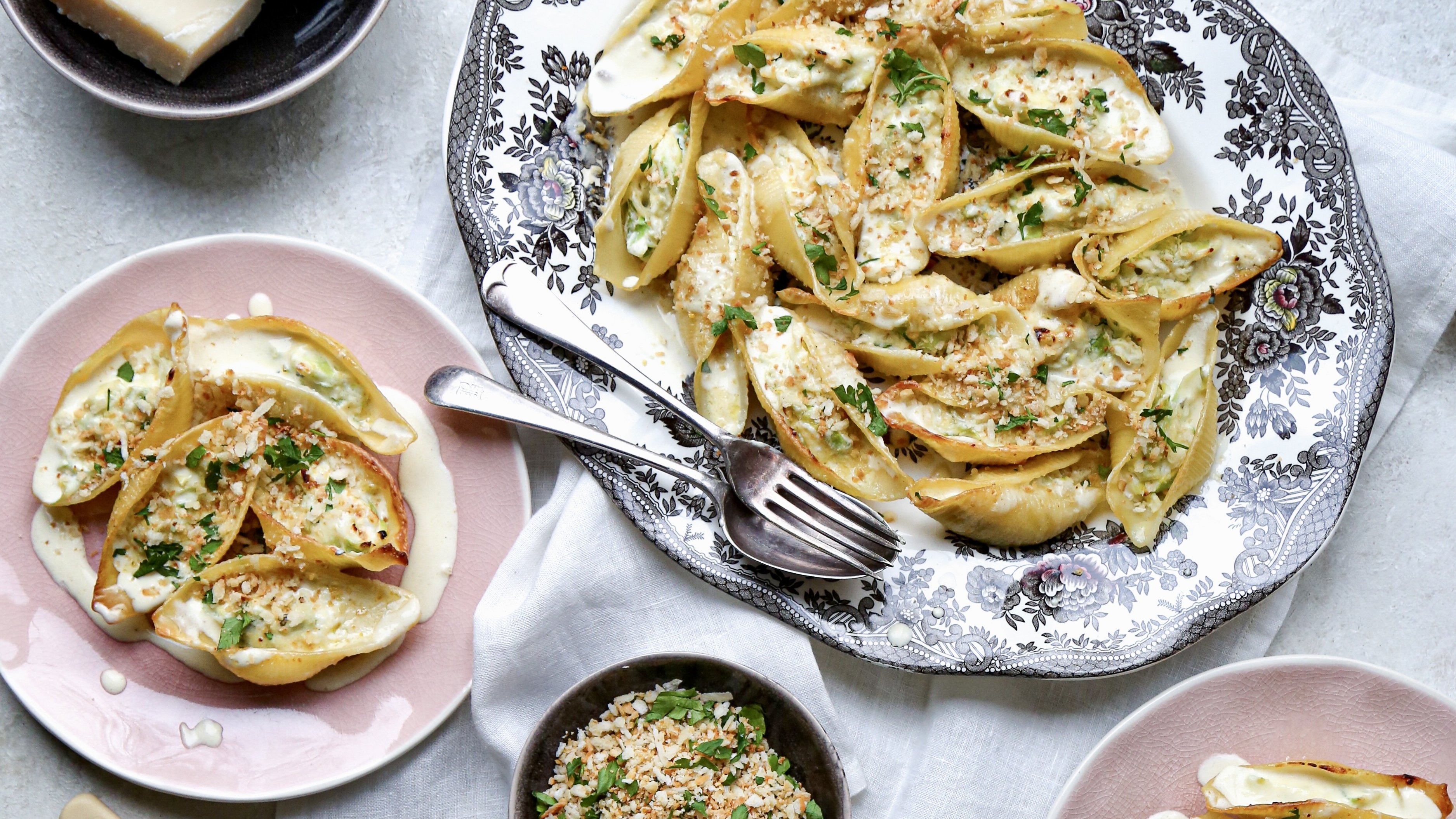 An Italian-inspired recipe for lemon-butter pasta shells with spring greens, ricotta and pangrattato
An Italian-inspired recipe for lemon-butter pasta shells with spring greens, ricotta and pangrattatoSpring greens are just about to come into their own, so our Kitchen Garden columnist reveals exactly what to do with them.
By Melanie Johnson
-
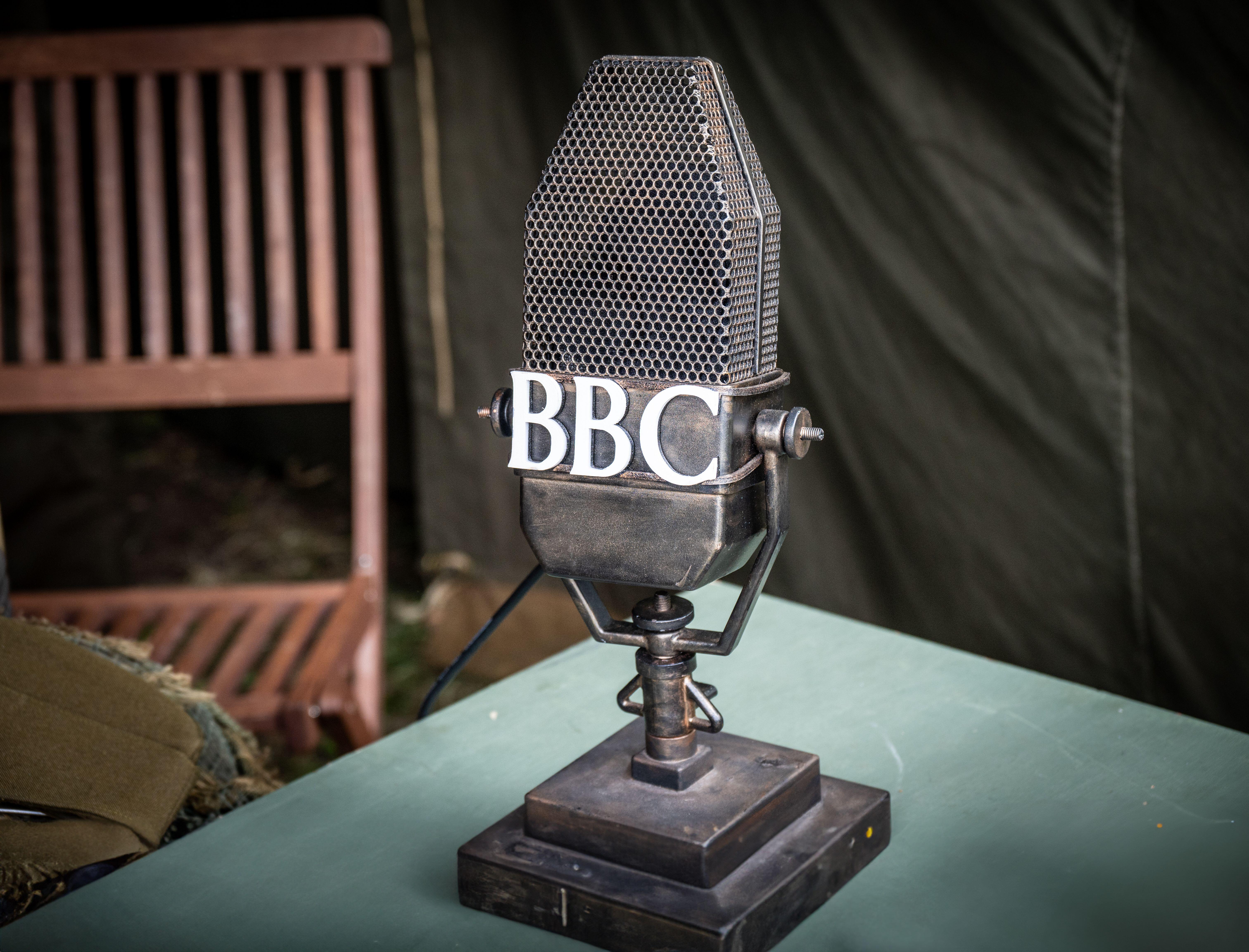 Curious Questions: What is the greatest April Fool's prank ever played?
Curious Questions: What is the greatest April Fool's prank ever played?As April 1 looms, Martin Fone tells the tale of one of the finest stunts ever pulled off.
By Martin Fone
